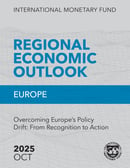This web page presents information about the work of the IMF in Cyprus, including the activities of the IMF Resident Representative Office. Additional information can be found on the Cyprus and IMF country page, including IMF reports and Executive Board documents that deal with Cyprus.
At a Glance: Cyprus and the IMF
- Current IMF membership: 191 countries
- Member since December 21, 1961
- Quota: SDR
- The was discussed by the Executive Board on
- Each member country of the IMF is assigned a quota, based broadly on its relative position in the world economy. A member country's quota determines its maximum financial commitment to the IMF, its voting power, and has a bearing on its access to IMF financing.
- Cyprus is represented in the Executive Board
- The Executive Board is responsible for conducting the day-to-day business of the IMF. It is composed of 24 Directors, who are appointed or elected by member countries or by groups of countries. The Managing Director serves as its Chairman. The Board usually meets several times each week. It carries out its work largely on the basis of papers prepared by IMF management and staff.
IMF’s Work on Cyprus
No results found. Either there was an error with the web service or there is no data returned by the web service.
Regional Economic Outlook
October 17, 2025

Europe’s growth is slowing and debt rising. Closing the productivity gap with the US is firmly in Europe’s grasp. Discussions need to move from recognition to action: deepen integration, raise productivity and secure long-term fiscal sustainability.
Read the Report



